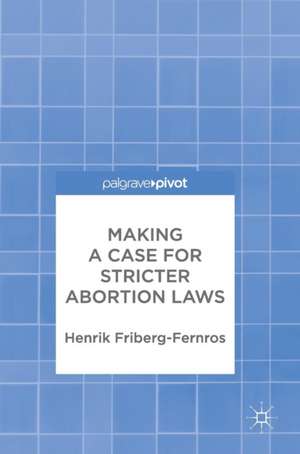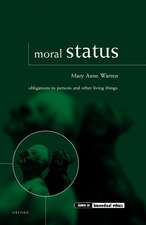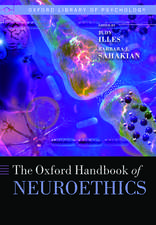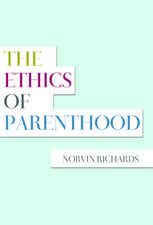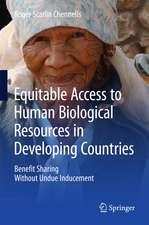Making a Case for Stricter Abortion Laws
Autor Henrik Friberg-Fernrosen Limba Engleză Hardback – 28 iul 2017
It addresses objections to basing abortion law on considerations of moral risk, presents two anti-abortion arguments – the deprivation argument and the substance view – to demonstrate the risk of permitting abortion, and discusses the moral risk of restricting access to abortion when it may unjustifiably harm women. The author also shows how welfare states can address the negative effects of restrictive abortion laws by preventive, mitigative and compensatory measures.
This is a thought-provoking and challenging book that will be of great interest to those considering abortion laws across the fields of medical ethics, bioethics, moral philosophy, law and politics.
| Toate formatele și edițiile | Preț | Express |
|---|---|---|
| Paperback (1) | 410.01 lei 6-8 săpt. | |
| Springer International Publishing – 13 mai 2018 | 410.01 lei 6-8 săpt. | |
| Hardback (1) | 415.95 lei 6-8 săpt. | |
| Springer International Publishing – 28 iul 2017 | 415.95 lei 6-8 săpt. |
Preț: 415.95 lei
Nou
Puncte Express: 624
Preț estimativ în valută:
79.59€ • 83.32$ • 65.86£
79.59€ • 83.32$ • 65.86£
Carte tipărită la comandă
Livrare economică 05-19 aprilie
Preluare comenzi: 021 569.72.76
Specificații
ISBN-13: 9783319572901
ISBN-10: 3319572903
Pagini: 105
Ilustrații: IX, 105 p.
Dimensiuni: 148 x 210 mm
Greutate: 0.29 kg
Ediția:1st ed. 2017
Editura: Springer International Publishing
Colecția Palgrave Macmillan
Locul publicării:Cham, Switzerland
ISBN-10: 3319572903
Pagini: 105
Ilustrații: IX, 105 p.
Dimensiuni: 148 x 210 mm
Greutate: 0.29 kg
Ediția:1st ed. 2017
Editura: Springer International Publishing
Colecția Palgrave Macmillan
Locul publicării:Cham, Switzerland
Cuprins
Chapter 1: A Precautionary Argument for More Restrictive Abortion Laws.- Chapter 2: Why it is Plausible to Ascribe the Fetus a Right to Life.- Chapter 3: Why One Should Doubt the Permissibility of Aborting a Human Person.- Chapter 4: How We Should Make Abortion Laws More Restrictive.- Chapter 5: Conclusions.
Notă biografică
Henrik Friberg-Fernros is Associate Professor at the Political Science Department, University of Gothenburg, Sweden.
Textul de pe ultima copertă
This book questions how abortion laws can be regulated in a time when abortion rights are still subject to intense debate.
It addresses objections to basing abortion law on considerations of moral risk, presents two anti-abortion arguments – the deprivation argument and the substance view – to demonstrate the risk of permitting abortion, and discusses the moral risk of restricting access to abortion when it may unjustifiably harm women. The author also shows how welfare states can address the negative effects of restrictive abortion laws by preventive, mitigative and compensatory measures.
This is a thought-provoking and challenging book that will be of great interest to those considering abortion laws across the fields of medical ethics, bioethics, moral philosophy, law and politics.
It addresses objections to basing abortion law on considerations of moral risk, presents two anti-abortion arguments – the deprivation argument and the substance view – to demonstrate the risk of permitting abortion, and discusses the moral risk of restricting access to abortion when it may unjustifiably harm women. The author also shows how welfare states can address the negative effects of restrictive abortion laws by preventive, mitigative and compensatory measures.
This is a thought-provoking and challenging book that will be of great interest to those considering abortion laws across the fields of medical ethics, bioethics, moral philosophy, law and politics.
Caracteristici
Provides readers with up-to-date information on the laws surrounding abortion Outlines a new version of the precautionary argument for more restrictive abortion laws in the Western world Analyses the feasibility of making abortion laws more restrictive Includes supplementary material: sn.pub/extras Includes supplementary material: sn.pub/extras
